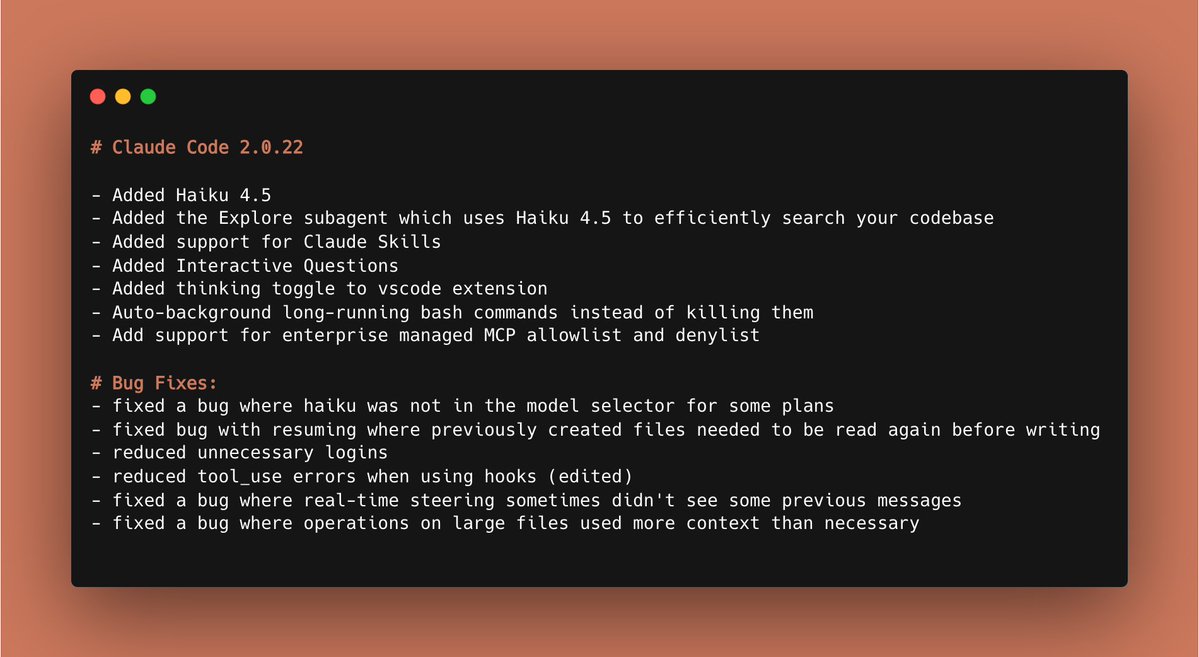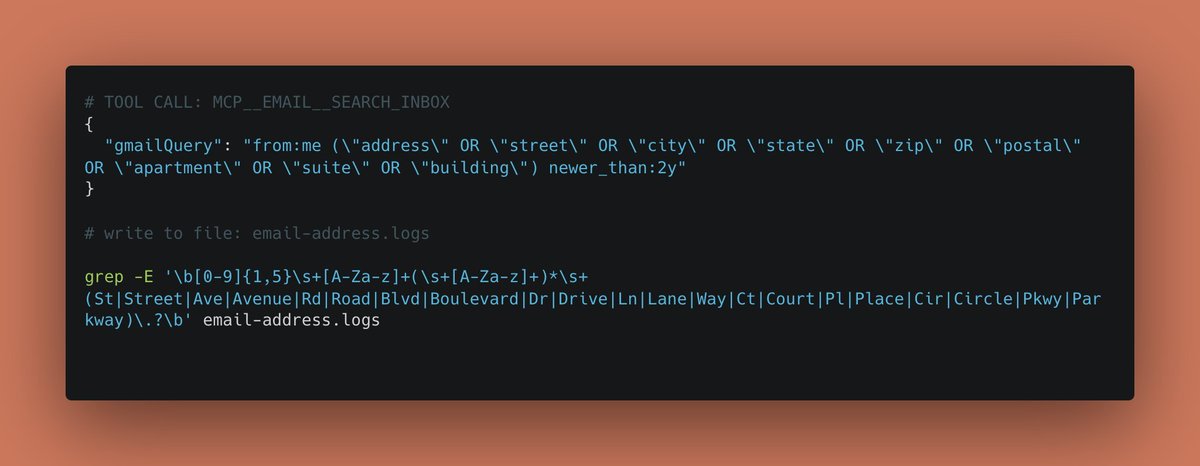Claude Code Weekly Round Up
A big week for shipping!
Besides Haiku 4.5, we added support for Claude Skills, gave Claude a new tool for asking interactive questions, added an ‘Explore’ subagent, auto-background long running tasks and fixed several bugs.
A big week for shipping!
Besides Haiku 4.5, we added support for Claude Skills, gave Claude a new tool for asking interactive questions, added an ‘Explore’ subagent, auto-background long running tasks and fixed several bugs.

in case you missed it, launch posts for Haiku:
https://x.com/_catwu/status/1978509174897053925
and interactive questions:
https://x.com/trq212/status/1979215901577875812
• • •
Missing some Tweet in this thread? You can try to
force a refresh









